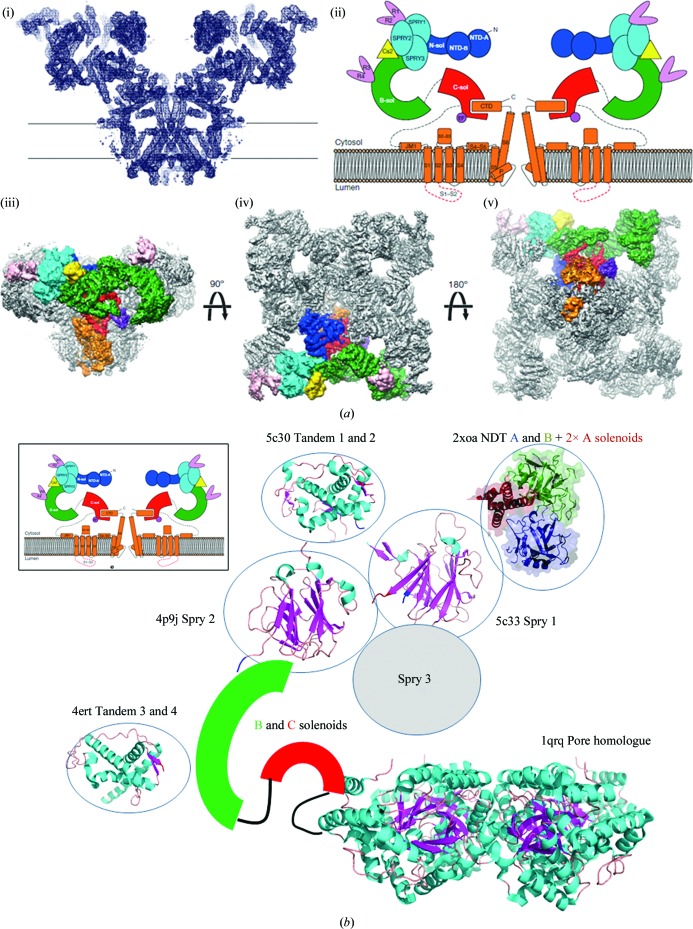Figure 4.
(a) Structure of ryanodine receptor type 1 (RyR1) from Efremov et al. (2015 ▸). The resolution is 4.8 Å. (i) The molecular architecture of RyR1 determined by cryo-electron microscopy. (ii) Schematic representation of the middle section in the plane of the channel: dark blue, N-terminal domain; cyan, Spry domains 1, 2 and 3; pink, ‘repeat domains’ 1, 2, 3 and 4; green, solenoid connecting domain; red, central solenoid domain; orange, transmembrane and C-terminal domains. Calstabine is coloured yellow. Global representations from cryo-EM perpendicular to the membrane (iii) and views parallel to the membrane from above (iv) and from below (v) are shown. The same colour coding is used as above. (b) Schematic representation of ryanodine receptor type 1. The diagram in (a) is taken from the structures obtained by crystallography and X-ray diffraction. They were placed on the three-dimensional envelope obtained by cryo-electron microscopy. The PDB codes are 5c30 for tandem domains 1 and 2; 2xoa for the N-terminal domain AB part with the two solenoids A; 4p9j for Spry 2; 5c33 for Spry 1; 4ert for tandem domains 3 and 4; and 1qrq for the β-subunit of the voltage-gated potassium channel. This figure was adapted from Boutin et al. (2016 ▸).

